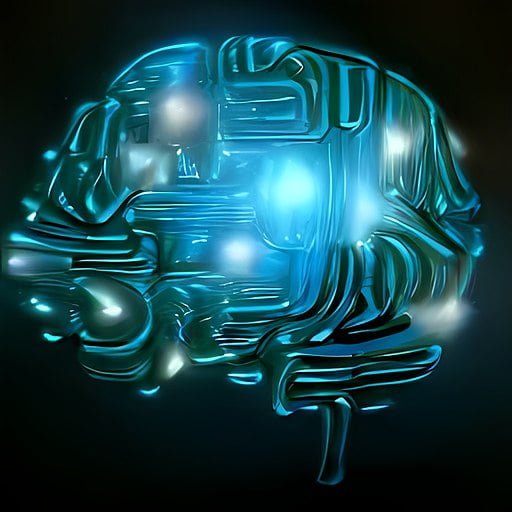Scientists are using smart computers to help them look for life in space. These computers can look at lots and lots of information very quickly. They help find new kinds of space signals that might come from aliens. The computers are so good because they can see patterns in the information by taking lots of pictures over time. This helps scientists look for space life in a new way.
Another group of scientists is using these smart computers to listen to stars and galaxies to find signals from aliens. They found eight possible signals from space that they didn’t see before. Also, scientists are using these computers to look at rocks from Mars to see if there was ever life there. The computers are almost always right when they tell if something was alive or not. But, the scientists say they need to check more to be sure if they really found space life.
Original news source: How AI is helping the search for extraterrestrial life (BBC)
🎧 Listen:
Slow
Normal
Fast
📖 Vocabulary:
| 1 | computers | Magic boxes that can think and help people find things |
| 2 | information | Things you know or learn about |
| 3 | signals | Messages that travel through the air |
| 4 | aliens | Creatures from space that we don’t know |
| 5 | patterns | Shapes or designs that repeat |
| 6 | pictures | What you see when you use a camera |
| 7 | scientists | People who are very smart and learn about the world |
| 8 | stars | Big balls of fire in the sky at night |
| 9 | rocks | Hard pieces of the earth you can hold in your hand |
| 10 | life | Everything that can breathe, grow, or move |
Group or Classroom Activities
Warm-up Activities:
– Charades
Instructions: Divide the class into small groups. Give each group a word or phrase related to space exploration (e.g. alien, galaxy, Mars). One person from each group will act out the word or phrase without speaking, while the rest of the group tries to guess what it is. The group that guesses correctly gets a point.
– Word Association
Instructions: Write the word “space” on the board. Ask the students to brainstorm and shout out as many words or phrases related to space as they can think of. Write these words on the board as they are mentioned. Then, ask the students to choose one word from the list and come up with new words or phrases associated with that word. Encourage them to explain the connections between the words.
– Vocabulary Pictionary
Instructions: Divide the class into pairs. Give each pair a set of space-related vocabulary words (e.g. alien, galaxy, rocket). One person from each pair will choose a word and draw a picture to represent it, while the other person tries to guess the word. After a set amount of time, switch roles. The pair with the most correct guesses wins.
– Speed Summarizing
Instructions: Give each student a copy of the article. In pairs or small groups, ask the students to take turns summarizing the main points of the article in one minute or less. Encourage them to use their own words and focus on the most important information. After each round, allow time for discussion and clarification.
– Two Truths and a Lie
Instructions: Have each student come up with two true statements and one false statement about space exploration. In pairs or small groups, they will take turns sharing their statements and the other students will try to guess which statement is the lie. Encourage the students to explain their reasoning for their guesses.
🤔 Comprehension Questions:
1. What are scientists using smart computers for?
2. How do the smart computers help scientists find new space signals?
3. What are scientists listening to with the smart computers to find signals from aliens?
4. How many possible signals from space did the scientists find?
5. What are the scientists using the smart computers to look at from Mars?
6. Are the computers usually right when they tell if something was alive or not?
7. Do the scientists need to check more to be sure if they really found space life?
Go to answers ⇩
🎧✍️ Listen and Fill in the Gaps:
Scientists are using smart computers to help them look for life in space. These computers can look at lots and lots of information very quickly. They help (1)______ new (2)______ of space signals that might come from aliens. The (3)______ are so good because they can see patterns in the information by taking lots of pictures over time. This helps scientists look for space life in a new way.
Another (4)______ of scientists is using these smart computers to listen to stars and galaxies to find signals from aliens. They found eight possible signals from space that they didn’t see before. Also, (5)______ are using these computers to look at (6)______ from Mars to see if there was ever life there. The computers are almost always right when they tell if something was alive or not. But, the scientists say they need to (7)______ (8)______ to be sure if they really found space life.
Go to answers ⇩
💬 Discussion Questions:
Students can ask a partner these questions, or discuss them as a group.
1. What is a smart computer?
2. How would you feel if you saw a signal from aliens in space?
3. Do you think there is life on other planets? Why or why not?
4. What do you think scientists can learn from looking at rocks from Mars?
5. How do you think the smart computers help scientists find space life?
6. Do you like looking at pictures of space? Why or why not?
7. What do you think aliens might look like?
8. How do you think scientists feel when they find something new in space?
9. What do you think the scientists will do next to check if they really found space life?
10. Do you think it’s important to find life in space? Why or why not?
11. What would you do if you saw an alien?
12. How do you think the smart computers listen to stars and galaxies?
Individual Activities
📖💭 Vocabulary Meanings:
Match each word to its meaning.
Words:
1. computers
2. information
3. signals
4. aliens
5. patterns
6. pictures
7. scientists
8. stars
9. rocks
10. life
Meanings:
(A) Everything that can breathe, grow, or move
(B) Messages that travel through the air
(C) Shapes or designs that repeat
(D) Things you know or learn about
(E) Magic boxes that can think and help people find things
(F) Hard pieces of the earth you can hold in your hand
(G) People who are very smart and learn about the world
(H) Creatures from space that we don’t know
(I) What you see when you use a camera
(J) Big balls of fire in the sky at night
Go to answers ⇩
🔡 Multiple Choice Questions:
1. What are scientists using smart computers for?
(a) To play games
(b) To watch movies
(c) To look for life in space
(d) To cook dinner
2. How do the smart computers help scientists find new space signals?
(a) By playing music
(b) By drawing pictures
(c) By talking to aliens
(d) By looking at lots of information very quickly
3. What are scientists listening to with the smart computers?
(a) Animals and plants
(b) Stars and galaxies
(c) Cars and trucks
(d) Toys and games
4. How many possible signals from space did the scientists find?
(a) Eight
(b) One
(c) Ten
(d) Twenty
5. What are the scientists using the smart computers to look at from Mars?
(a) Trees
(b) Water
(c) Food
(d) Rocks
6. Are the computers always right when they tell if something was alive or not?
(a) No
(b) Maybe
(c) Yes
(d) Sometimes
7. What do the scientists need to do to be sure if they really found space life?
(a) Stop looking
(b) Check more
(c) Go home
(d) Take a nap
8. How do the computers see patterns in the information?
(a) By taking lots of pictures over time
(b) By listening to music
(c) By watching movies
(d) By talking to aliens
Go to answers ⇩
🕵️ True or False Questions:
1. Scientists don’t need to check more to be sure if they really found life in space.
2. Scientists are not using the computers to listen to stars and galaxies for signals from aliens.
3. These computers can look at a lot of information very quickly.
4. The computers cannot see patterns in the information by taking lots of pictures over time.
5. The computers can find new signals from space that might come from aliens.
6. They found eight impossible signals from space that they didn’t see before.
7. The computers are good at telling if something was alive or not when looking at rocks from Mars.
8. Smart computers are helping scientists search for aliens in space.
Go to answers ⇩
📝 Write a Summary:
Write a summary of this news article in two sentences.
Check your writing now with the best free AI for English writing!
Writing Questions:
Answer the following questions. Write as much as you can for each answer.
Check your answers with our free English writing assistant!
1. How are scientists using smart computers to help them look for life in space?
2. Why are these computers so good at finding new kinds of space signals?
3. What are scientists using the smart computers to listen to?
4. How many possible signals from space did the scientists find?
5. What are scientists using the smart computers to look at from Mars?
✅ Answers
🤔✅ Comprehension Question Answers:
1. What are scientists using smart computers for?
Scientists are using smart computers to help them look for life in space.
2. How do the smart computers help scientists find new space signals?
The smart computers can look at lots of information very quickly and find patterns in the information by taking lots of pictures over time.
3. What are scientists listening to with the smart computers to find signals from aliens?
Scientists are listening to stars and galaxies with the smart computers to find signals from aliens.
4. How many possible signals from space did the scientists find?
The scientists found eight possible signals from space.
5. What are the scientists using the smart computers to look at from Mars?
The scientists are using the smart computers to look at rocks from Mars.
6. Are the computers usually right when they tell if something was alive or not?
Yes, the computers are usually right when they tell if something was alive or not.
7. Do the scientists need to check more to be sure if they really found space life?
Yes, the scientists need to check more to be sure if they really found space life.
Go back to questions ⇧
🎧✍️✅ Listen and Fill in the Gaps Answers:
(1) find
(2) kinds
(3) computers
(4) group
(5) scientists
(6) rocks
(7) check
(8) more
Go back to questions ⇧
📖💭✅ Vocabulary Meanings Answers:
1. computers
Answer: (E) Magic boxes that can think and help people find things
2. information
Answer: (D) Things you know or learn about
3. signals
Answer: (B) Messages that travel through the air
4. aliens
Answer: (H) Creatures from space that we don’t know
5. patterns
Answer: (C) Shapes or designs that repeat
6. pictures
Answer: (I) What you see when you use a camera
7. scientists
Answer: (G) People who are very smart and learn about the world
8. stars
Answer: (J) Big balls of fire in the sky at night
9. rocks
Answer: (F) Hard pieces of the earth you can hold in your hand
10. life
Answer: (A) Everything that can breathe, grow, or move
Go back to questions ⇧
🔡✅ Multiple Choice Answers:
1. What are scientists using smart computers for?
Answer: (c) To look for life in space
2. How do the smart computers help scientists find new space signals?
Answer: (d) By looking at lots of information very quickly
3. What are scientists listening to with the smart computers?
Answer: (b) Stars and galaxies
4. How many possible signals from space did the scientists find?
Answer: (a) Eight
5. What are the scientists using the smart computers to look at from Mars?
Answer: (d) Rocks
6. Are the computers always right when they tell if something was alive or not?
Answer: (c) Yes
7. What do the scientists need to do to be sure if they really found space life?
Answer: (b) Check more
8. How do the computers see patterns in the information?
Answer: (a) By taking lots of pictures over time
Go back to questions ⇧
🕵️✅ True or False Answers:
1. Scientists don’t need to check more to be sure if they really found life in space. (Answer: False)
2. Scientists are not using the computers to listen to stars and galaxies for signals from aliens. (Answer: False)
3. These computers can look at a lot of information very quickly. (Answer: True)
4. The computers cannot see patterns in the information by taking lots of pictures over time. (Answer: False)
5. The computers can find new signals from space that might come from aliens. (Answer: True)
6. They found eight impossible signals from space that they didn’t see before. (Answer: False)
7. The computers are good at telling if something was alive or not when looking at rocks from Mars. (Answer: True)
8. Smart computers are helping scientists search for aliens in space. (Answer: True)
Go back to questions ⇧















